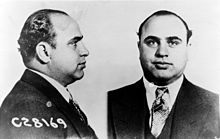With the passage of the Nineteenth Amendment to the United States Constitution, which provided: “The right of citizens of the United States to vote are not be denied or abridged by the United States or by any state on account of sex?" Women’s suffrage campaigns where happy they were finally getting the rights they had been seeking for years. There had been several earlier attempts at passing the bill before it was finally passed in 1920:
January 12, 1915; defeated by a vote of 204 to 174
January 10, 1918; passed by the house with two thirds of a victory with barely one vote
September 30, 1918; the bill was taken to the senate but fell short of passage by two votes
February 10, 1919; the bill was voted on again and failed by one vote
June 4, 1919; the bill went to senate and was passed 54 to 26.
It was then passed by 36 states, making it an official amendment, on August 18, 1920

